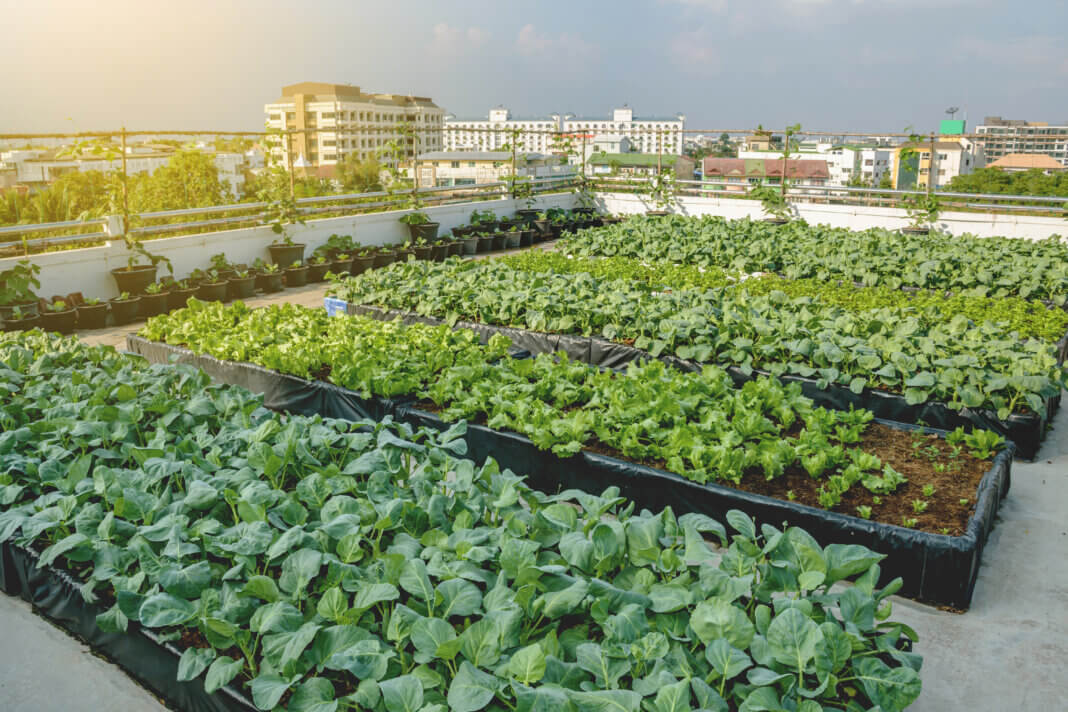How Cities Can Encourage Urban Farming
Urban farming is on the rise and is a beneficial approach to resolving food insecurity and environmental crises in bustling cities. However, getting this unique form of agriculture off the ground can take time and creativity. Fortunately, city officials can promote it to the community in several ways.
What Is Urban Farming?
Urban farming is an agriculture practice in densely populated cities and towns where residents repurpose or utilize unused space to grow food and raise small livestock. These farms may include community gardens, rooftop gardens, backyard gardens and more. Unlike a traditional home gardener, an urban farmer grows food to contribute to society, selling yields for a small price or giving it away for free.
City-based agriculture is widespread and critical to food security. According to one study, the practice constitutes 5%–10% of global food production.
Urban farms are also essential to low-income neighborhoods with limited access to grocery stores. Research shows that 39.5 million Americans are affected by this socioeconomic inequity. White neighborhoods have four times as many supermarkets as predominantly Black neighborhoods.
Opportunities and Challenges for Implementation
In 2022, the United States Department of Agriculture invested 14.2 million in 52 grants to promote urban agriculture. The grants enable farming initiatives, nutrition programs, and the expansion of quality food. Some of the benefits associated with urban farms include:
> Building localized, self-reliant food systems.
> Promoting sustainability and green infrastructure.
> Empowering marginalized communities.
Likewise, precision technologies and eco-friendly methods boost productivity while saving essential resources.
Of course, urban farming has its challenges. For one thing, cities offer limited space, so officials must get creative in designating viable areas for gardening and agriculture. Likewise, urban soils are polluted with heavy metals — such as copper, zinc, lead and nickel — posing a contamination risk to cultivated food and humans.
Existing regulations blocking land use, extensive permitting processes, and poor zoning may also present difficulties in establishing urban farms, inadequate resource availability and public support.
5 Strategies for City Officials to Promote Urban Agriculture
City officials must make urban farming appealing to community members if they hope to weave it into the fabric of life. These five strategies are among the best ways to encourage city-based agriculture to support society.
Provide Space for Community Gardens
Community gardens offer urban residents an opportunity to participate in agriculture, helping to boost food security, deliver better health outcomes, and foster socialization. However, citizens require green space to establish a community garden initiative.
City officials can designate different areas for communal gardening. Empty lots, schoolyards, parks, community centers, and retirement facilities are quality locations for plots. Of course, when choosing the best area, it’s vital to ensure accessibility, water resources, and soil health.
Offer Tax Incentives
Investing in urban agriculture enhances the local economy, creates jobs and stimulates production within the city. It also enables urban environments to prioritize sustainability through eco-friendly farming practices. Therefore, cities might consider tax incentives — credits, deductions, and exemptions — to offset costs for farmers and local businesses implementing these food initiatives.
Officials should issue a notice to people utilizing tax incentives to file their tax returns correctly. Although the chances of getting audited were 3.8 for every 1,000 filed returns in 2022, getting audited is still a risk for higher earners and low-income individuals.
Deliver Education and Resources
With 68% of the global population expected to reside in cities by 2050, city officials must nurture healthy communities. This is especially true since low-income citizens face inequities in accessing quality food and face more significant malnutrition.
According to studies, healthy food options are more expensive and out of budget for marginalized people, while a lack of grocery stores makes receiving proper nutrition difficult. Citizens then turn to cheaper processed food or struggle to provide food for their families altogether.
Delivering urban farming education workshops and programs teaches aspiring urban farmers how to improve everyone’s access to fresh produce. Community health leaders, nonprofits, and other local experts can contribute their knowledge and train others for free through volunteering.
Launch Public Awareness Campaigns
Overall, the public is enthusiastic about urban farming, with 73% maintaining a positive perception and 15% viewing it as unfavorable. Those with negative views see it as expensive, polluting, and bringing about possible diseases and pests.
City officials should develop and launch public awareness campaigns targeting those individuals, highlighting urban farming as community-building, sustainable and organic. Social media, local news, print materials, and local events can also maximize reach.
Additional opportunities for raising public awareness include partnering with businesses, nonprofits, community programs, and schools to spread the message and generate interest and support.
Update Land Use Policies
Rezoning and updating how prospective urban farmers can utilize city space is essential for ensuring this initiative works. Officials can allocate vacant lots or allow rooftop gardening, vertical gardens, and other agricultural spaces to be part of the urban infrastructure.
This is especially important in food deserts so residents can grow a nourishing supply of fresh produce at home or nearby.
Urban Farming Helps Secure Future Food Security in Cities
Community health and sustainability are collaborative efforts between residents, businesses, and local government. When city officials support local farmers in establishing urban agriculture, they contribute to a more secure and healthy food system.
